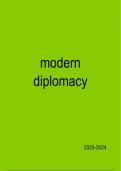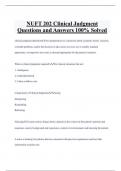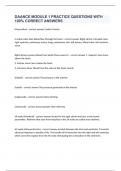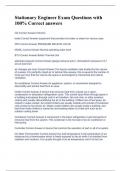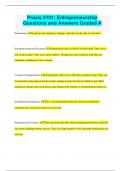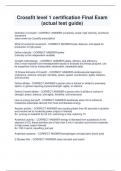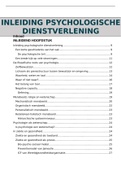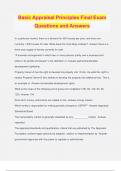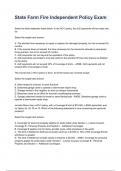Notes de cours
Modern Diplomacy (grade: 18/20) (2023-24) - prof. dr. Johan Verbeke
- Cours
- Modern Diplomacy
- Établissement
- Vrije Universiteit Brussel (VUB)
hey study brat! i made these notes for modern diplomacy and just by studying them i scored 18 out of 20 on the exam. the notes provide a lot of info with plenty of examples from the book and also from the classes. xoxo just a tip: the professor loves it when you provide examples
[Montrer plus]
